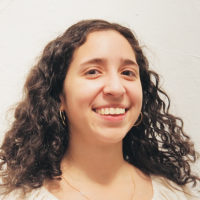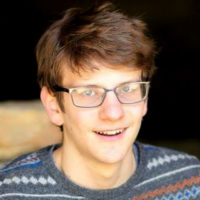By Molly A. Seltzer
The Andlinger Center for Energy and the Environment has awarded 14 undergraduates research funds to support research on energy- and environment-related projects. These students, who are working as interns under the direction of faculty, have been selected for their excellent academic record and the promising potential of their research in helping secure the world’s energy and environmental future.
The research is supported by the Peter B. Lewis Fund for Student Innovation in Energy and the Environment and the Dede T. Bartlett P03 Fund for Student Research in Energy and the Environment.
Among the projects are investigations exploring potential scenarios for global energy transitions and modeling data from fusion reactions. The Andlinger Center is also offering internship opportunities with the off-campus non-profits American Council for an Energy-Efficient Economy (ACEEE) and the Environmental Defense Fund (EDF). These additional opportunities at ACEEE and EDF provide a chance for undergraduates to engage in developing real-world solutions and gain experience working at the intersection of clean energy technologies and society.
The students’ projects are described below:
 Connie An (CBE ’22)
Connie An (CBE ’22)
Working with Prof. Michael Webb
“Understanding and quantifying properties important to the design of future battery technology using MD simulation”
The development of improved energy storage technology is of paramount importance in the emerging sustainability landscape. While Li-ion battery technology is widely studied, and interest in the conduction of other ions (Na+, K+, Mg2+, Ca2+, F-) is growing, there is little supporting theoretical characterization. Using simulations and free energy calculations, the intern will systematically compare the salvation behavior of ion species in common liquid and solid polymer electrolyte solvents. This work will be a novel first step towards predicting the relative performance of these ion/solvent combinations in battery technology from a theoretical perspective.
 Taj-Jahnae Brailsford-Forde (CBE ’22)
Taj-Jahnae Brailsford-Forde (CBE ’22)
Working with Prof. Forrest Meggers
“Geothermal heat exchangers for the campus of the future (energy systems)”
Geothermal is a major potential source of renewable energy. The easiest form to access is the direct use of thermal energy stored in the ground. This project involves analyzing the ability of a novel coaxial heat exchanger to store heat in the summer and winter to minimize peak heating or cooling loads, thereby addressing electrical load variability in the grid. The team works closely with Princeton University Facilities as part of the new campus plan for Princeton that will shift from natural gas-based steam heating to a large geo-exchange system.
 Emily Cruz (CEE ’22)
Emily Cruz (CEE ’22)
Working with Prof. Elke Weber
“Behavioral Science for Policy Lab”
This major project focuses on the deep and rapid decarbonization of the energy systems of India, the United States, and areas of Europe. The intern will assist in the comparative research efforts to model perceptions of and responses to energy policy and system change, and identify behavioral barriers to decarbonization across these different countries and cultures. Topic areas include coal mining and use, carbon tax adoption attitudes, willingness to install and adopt modern energy structures (e.g., smart grids, additional electricity transmission lines) and sources of energy (e.g., wind farms). The research goals focus both on understanding existing social norms and perceptions of these environmental areas and the institutions, agents, and other forces that impact them.
 Ricky Feig (MAE ’21)
Ricky Feig (MAE ’21)
Working with Prof. Forrest Meggers
“SMART Sensor”
The project will analyze existing sensor data from the SMaRT Sensor (Scanning Mean Radiant Temperature) to optimize the sensor’s hardware programming. The sensor is useful for improving thermal comfort in buildings and reducing the burden on traditional heating and cooling systems by providing a three-dimensional thermal image of a room and identifying areas there is heat loss. By improving how the sensor works, the intern will help tune the device to be able to be incorporated into building design tools and standard thermostats.
 Joseph Giguere (CEE ’21)
Joseph Giguere (CEE ’21)
Environmental Defense Fund (EDF)
“Sustainable Energy for Puerto Rico”
As part of the ambitious energy transition agenda, EDF aims to redefine energy access in Puerto Rico. By securing the right policies and partnering with motivated communities, local groups, and impact-focused investors, the project will work to deploy innovative and economically sustainable microgrid projects that can deliver clean, affordable and reliable energy to low-income communities across the island. The “Sustainable Energy for Puerto Rico” intern will play an integral role within the cross-programmatic Puerto Rico team, composed of EDF+Business, Clean Energy, and Political Affairs staff. As part of this team, the intern will provide key research and analysis and build relationships with essential stakeholders to directly inform the launch of the first pilot microgrid. Research tasks may include assisting with the technical scoping phase of the microgrid, contributing to a communal energy efficiency curriculum, building out an investable blended-finance model, and providing in-depth analysis of emerging energy policy initiatives.
 Katherine Graham (ELE ’22)
Katherine Graham (ELE ’22)
Working with Joe Lane
“Analysis of Energy System Data for India”
The project will be focused on collecting quantitative information on energy demand, supply, and cost for aspects of the Indian energy system. This work will involve the search for, processing of, and analysis of a variety of datasets that are being compiled for use in two different energy models. The intern will learn more about the nature of energy systems in a rapidly developing country.
 Julia Harisay (WWS ’21)
Julia Harisay (WWS ’21)
American Council for an Energy Efficient Economy
“Increasing Home Energy Assessment Conversion Rates with Behavioral Science”
Behavioral science and psychology are perfectly positioned to understand homeowner decision-making for energy upgrades. The American Council for an Energy Efficient Economy’s behavior and human dimensions program has systematically studied message framing and assessment report-writing for home energy decisions over the past several years. In this project, the student will apply the findings from this research to test the ability of behavioral science to have measurable impacts on energy upgrade conversion rates. The intern will be asked to conduct background literature reviews, collect data on current practices of home energy assessors and, under the guidance of the research supervisor, design educational materials for home energy assessors.
 Azmaine Iqtidar (MAE ’21)
Azmaine Iqtidar (MAE ’21)
Working with Prof. Howard Stone
“Wetting and Complex Fluids”
Many environmental processes require a solvent to access a surface to carry out a reaction, such as dissolving a pollutant that is stuck on the surface, or releasing oil from a surface during enhanced oil recovery. This surface access, known as wetting, has been studied for many years, and its efficiency depends on chemical interactions and surface physical roughness. The research aims to improve understanding of how efficient wetting is on rough cylindrical surfaces, which are typically not studied, and quantitatively assess the solvent droplet shapes and sizes that form on these surfaces during wetting.
 Alexander Kim (MAE ’23)
Alexander Kim (MAE ’23)
Working with Prof. Forrest Meggers
“Making People Cool with Radiant Heat Transfer”
The heating and cooling of buildings accounts for more than 75% of energy used in buildings. In the United States, buildings are responsible for 40% of greenhouse gas emissions. The project aims to shift the focus away from heating and cooling rooms to heating and cooling people. Radiant heat transfer accounts for half of the heat leaving the body, yet it is not measured or controlled effectively in building operations. This project will use existing sensor scan data reduction to evaluate control and sensing techniques to make people feel hot or cold independent of air temperature using radiant heat transfer surfaces.
 Ryan Lee (MAT ’21)
Ryan Lee (MAT ’21)
Working with Prof. Minjie Chen
“Development of a Machine Learning-based Magnetic Core Loss Modeling Platform”
This project will develop a platform using machine learning to model magnetic core loss to accelerate the design process of power electronics. The student will develop software tools and experimental setups to measure the magnetic core loss, process the data, and generate SPICE netlist for magnetic-in-circuit simulations.
 Charlotte Merchant (COS ’23)
Charlotte Merchant (COS ’23)
Working with Eric Larson
“Downscaling Energy-system Transitions”
Energy systems will need to be decarbonized rapidly to achieve mid-century emissions targets in efforts to mitigate the most deleterious effects of climate change. Research on energy system transitions largely focuses on technoeconomic modeling of abstract large-scale systems. However, to appropriately plan and design systems and policies, accounting for spatially-resolved technical, political, and socioeconomic constraints and objectives, spatial downscaling of energy system transitions is necessary. This project will focus on geospatial data collection and analysis of downscaled energy system transitions.
 Nick Sudarsky (COS ’23)
Nick Sudarsky (COS ’23)
Working with Prof. Forrest Meggers
“Data for Buildings and Campus”
The intern will learn about new IoT data interfaces, and how to map and visualize them. These interfaces are part of a wide range of IoT sensors, which help to evaluate the operations of building systems. The intern will contribute to basic small-scale sensor development remotely, cloud database setup, and web and mobile interface development, specifically for a new Sigfox network available on campus. The team is also working with Princeton University Facilities who recently installed some new building automation systems that allow REST API interfacing. The intern will also help to develop a better lightweight geometric modelling kernel in Python for performing spatial analysis using OpenCascade Technology.
 Aaron Wu (MAT ’23)
Aaron Wu (MAT ’23)
Working with Prof. Ege Kolemen
“Machine Learning Approach to Understanding the Underlying Principles of Fusion Reactions to Optimize Plasma Containment”
The project deals with applying machine learning techniques to large datasets gathered from experimental fusion reactors. The aim is to create reasonable models in order to gain a better understanding of fusion reactions, which would allow for the development of a real-time control system to optimize plasma containment.
 Diane Yang (ELE ’23)
Diane Yang (ELE ’23)
Working with Prof. Barry Rand
“Modeling the Optical Properties of Top Light Emitting Diodes”
The research project seeks to optically model the output of a thin film perovskite light emitting diode. Metal halide perovskites are promising for light emitting diodes for potential lighting or display applications, but not much is known about the electrical field profile inside the device. The research aims to model this profile to allow for predicting device architectures and configurations that could lead to improved performance.
Read about past internship projects and experiences below:
2019, 2018, and 2017 recipients
Andlinger summer program yields summer exploration and new pathways
People spotlight: Audrey Shih – studying polymer flow for groundwater remediation